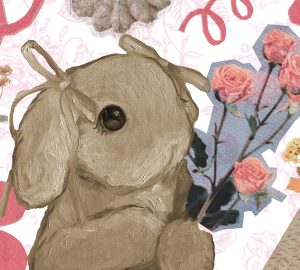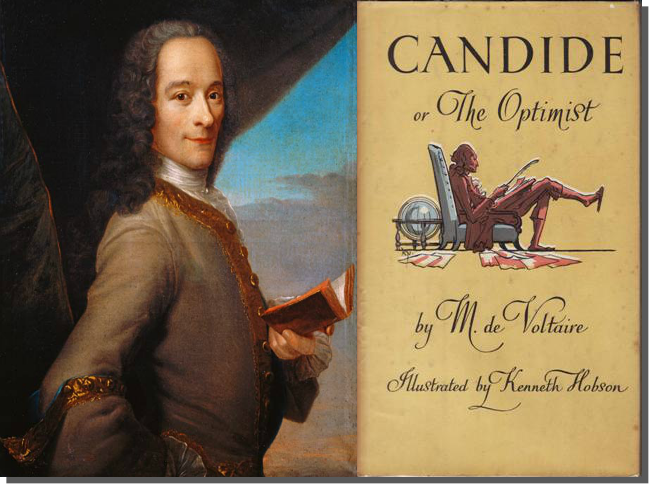Stuff you should read: Voltaire’s ‘Candide, or the Optimist’
“If this is the best of possible worlds, what are the others?”
That is the question raised by Candide — a man with a talent for jumping from one disaster into another and still believing they all happened for a good reason. Although Voltaire’s novel might seem chaotic and absurd because of its plot, each exaggeration is not that far from reality. Voltaire condensed life’s misfortunes into a short novel of the world’s purest optimist traveling the world with a cast of characters who endure everything terrible and painful in life. This sort of humor serves as a way to criticize the optimist philosophies that argue that everything happens for a good reason. “Candide” was published in 1759, when expressing such ideas angered both church and monarchy, so Voltaire proved himself a rebel by publishing it anyway, even if it meant living in exile. That being said, “Candide” doesn’t hold back and exposes the miseries and terrors of life in a graphic yet hilarious way that becomes easier to digest, enabling a clear understanding of how ridiculous the naïve optimist can be.
At some point, we’ve all been like Candide, trying to make some sense out of the madness in life and choosing optimism for comfort. But despite Voltaire’s rejection of those optimistic ideas, he is not a pessimist. Instead, he suggests different ways in which we can improve as individuals and contribute to society. Voltaire uses satire to emphasize how ridiculous it is to go about life with the philosophy of Candide and his mentor Dr. Pangloss. It’s easy to love a book like Candide because of its scandalous humor that remains consistent throughout the whole novel, and it keeps growing, to the point where the characters go through surreal events that avoid all logic but somehow make perfect sense in the grand scheme of things. It’s likely that at some point Voltaire makes fun of you or your beliefs, and that shouldn’t be seen as offensive but rather insightful. That is what good satire does.
It’s important to read this book because it invites readers to challenge the ideas around them and dare to think for themselves, without relying on religion and tradition to make their decisions for them. Voltaire went against all the norms of his society, and by writing “Candide,” he fought censorship and defended the right to express himself through art no matter who disliked it. The novel believes in the power of art to transform perspectives and beliefs, and offers proper guidance when everything seems confusing and chaotic, as it argues that it is fruitless to waste life in a desperate search for the purpose of everything. Voltaire believes there is a god somewhere but that he is indifferent to what happens to us, so it makes no sense to try and understand god’s intentions as they escape our mental capacities.
Readers will notice how Voltaire’s descriptions of social disasters, tragedies and massacres lack the long introspective prose that one would expect in those contexts. Instead, these events are stated as simple one-sentence facts and the story keeps going straight away without any pauses, causing shock in the reader, but also an easier understanding of how absurd the universe is.
Additionally, the novel tackles the question of how to be happy in this imperfect world. Voltaire believes one cannot be entirely happy in a place that suffers from famine, violence, dishonesty, corruption and injustice, so there is a need for philosophical enlightenment. “Candide” condemns three great evils in humankind: vice, idleness and want. To fight those evils, Voltaire says, “Let us take care of our own garden.” You might have heard the expression before, and now you know where it comes from. By caring for our own garden, focusing on labor that brings us fulfillment and enjoying life’s small victories and pleasures, we can be distracted and somewhat protected from our existential fears of life and death. This encourages the cultivation of hope, which Voltaire believed to be the driver of humanity.
Quotes from the novel:
“Think for yourselves and let others enjoy the privilege to do so too.”
“But for what purpose was the Earth formed?’ asked Candide. ‘To drive us mad,’ Martin answered.”
“‘What is optimism?’ asked Cacombo. ‘I’m afraid to say,’ said Candide, ‘that it’s a mania for insisting that all is well when things are going badly.'”






















